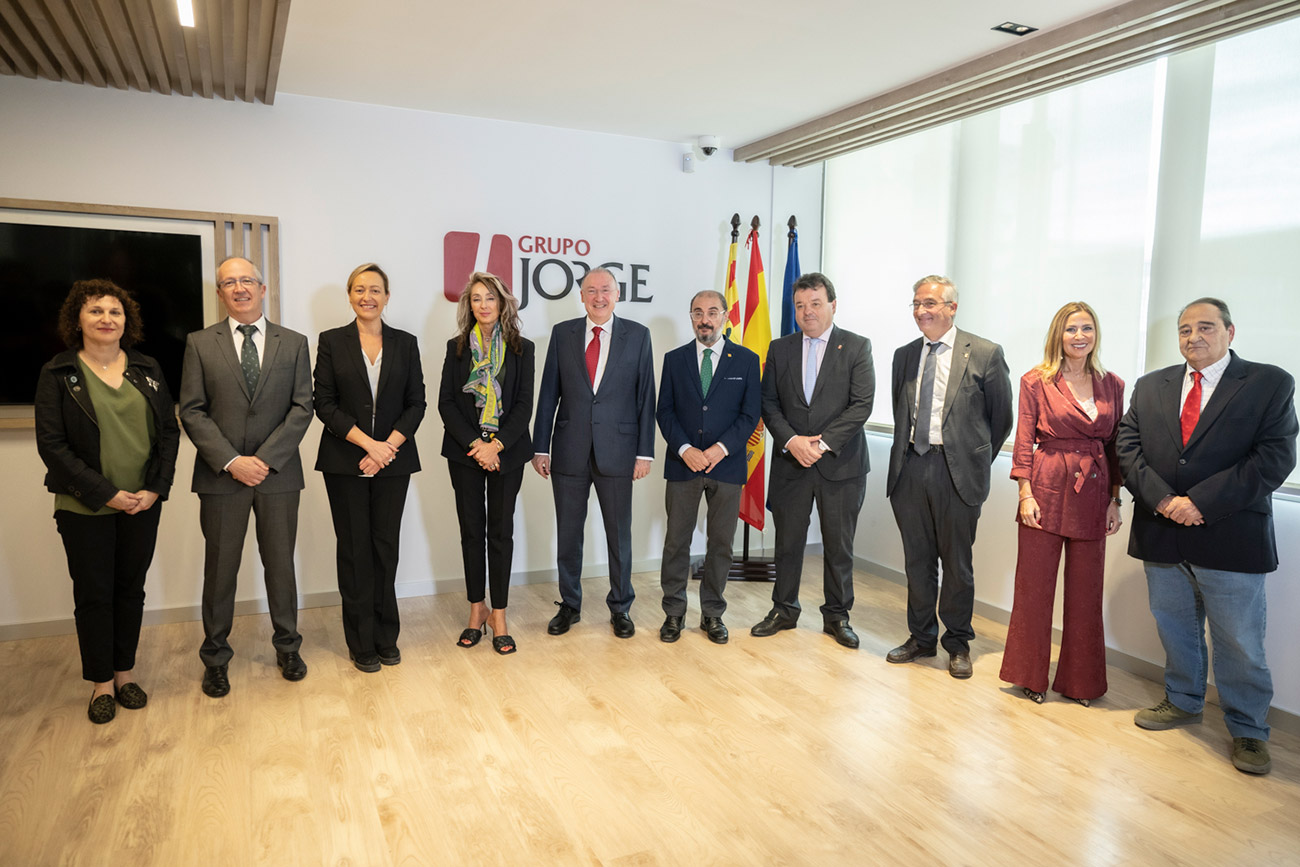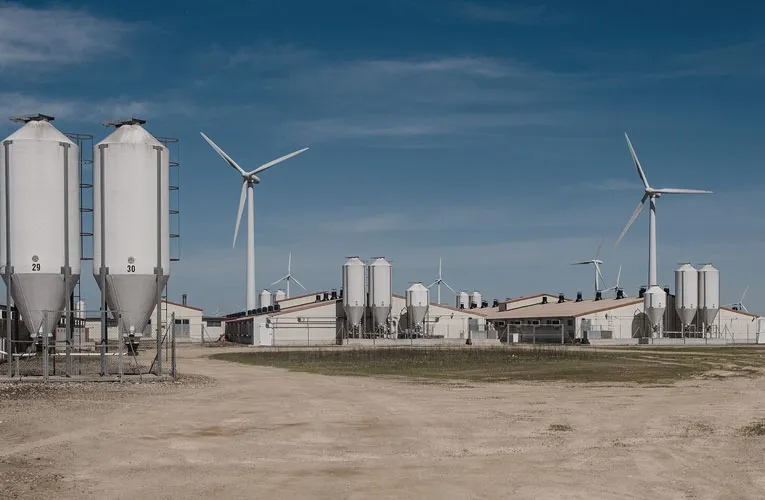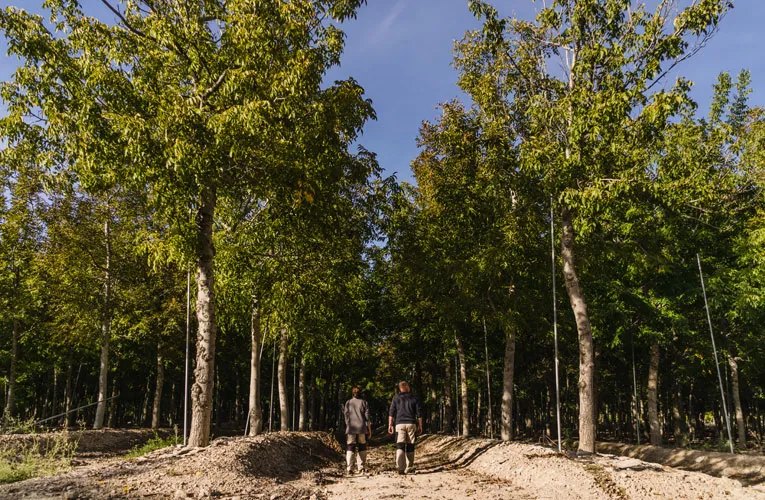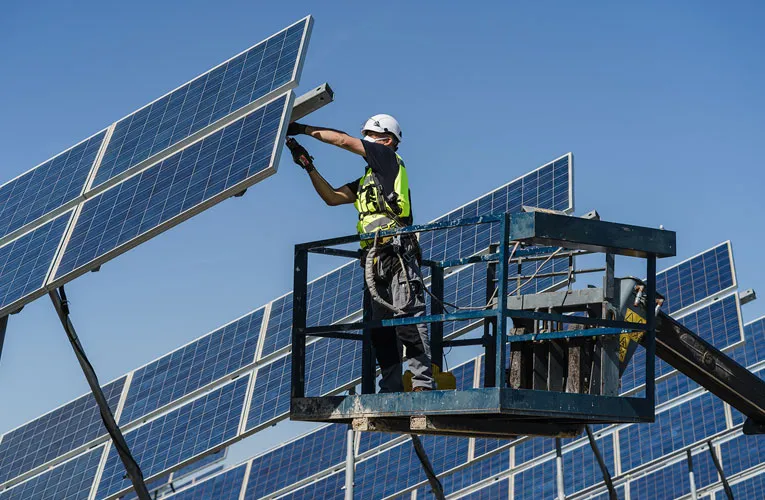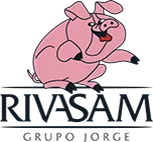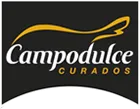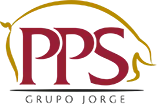This project, led by Spain’s leading pork meat producer and exporter, is set to invest 60 million euros in the scheme, which will make possible the movement of a high volume of goods by train, thereby reducing C02 emissions while creating 192 new jobs.
The new Industrial Hub will occupy 35 hectares and will be situated within the Zuera Logistical Platform, with the aim of protecting the environment and strengthening the circular economy.
Zaragoza, 24th October, 2022.- Grupo Jorge's management met today with the President of Aragon, Javier Lambán and the councillor for Economy, Planning and Labour, Marta Gastón, and councillor for Agriculture, Livestock and the Environment, Joaquín Olona, in order to reveal to them the details of their new Industrial Hub, which will help optimise this group’s logistical operations within the meat, energy amd foresting industries. This ambitious project will help reduce CO2 emissions by reducing road traffic and will contribute to the structuring of the territory in the rural district of the Zaragoza-Huesca corridor.
This initiative falls within the framework of the commitments of Grupo Jorge, a carbon neutral business, towards sustainability and circular economy. Its aim is to be able to concentrate the arrival of raw materials into Zuera and the expedition of the finished product from Zuera by rail. As Sergio Samper, CEO of Grupo Jorge, has stated; “for us, the railway is a fundamental as it is a key piece in the system of sustainable goods transport by land, due to its efficiency over long distances, lower accident rate, low CO2 emissions and protection of the environment”.
The new Industrial Hub will occupy approximately 35 hectares and will be situated in the Zuera Logistical Platform, more specifically in the Los Llanos industrial estate, an area next to El Campillo industrial estate, where you can already find businesses belonging to Grupo Jorge, dedicated to the production, manufacture and distribution of pork meat, such as Rivasam, The Pink Pig, Aralogic and Campodulce. In order to develop this, as Samper explains, “an investment of 60 million euros will be made, which will create 192 new jobs”.
.
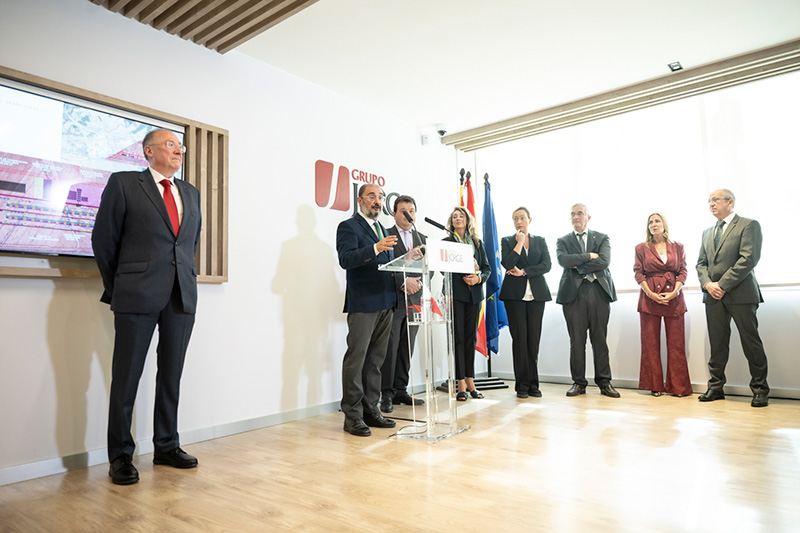
This project will be divided into two zones: the logistical area, with a Logistical Rail Centre, a Logistical Road Centre, a secure rest area for the parking and processing of road hauliers; and an industrial area, with an animal feed factory, a Frozen Food Preservation Chamber, and a self-supplying energy plant.
The logistical area will house a Logistical Rail Centre made up of an unloading terminal for raw materials (cereals, flours…,) received by rail from a port or internal point, with a train platform capable of taking loads of up to 1,000 Tonnes, and an interior terminal for exporting the final product by train to ports and European destinations, which will have three platforms each of 750 metres in length. Furthermore, this zone envisages a Logistical Road Centre – a secure rest area for the parking and processing of road hauliers, with a capacity for up to 200 such vehicles and which will be included in the European network.
The Hub’s second zone is dedicated to industrial use. Together with the new reception port for raw materials, the project envisages the installation of a new animal feed factory which will be mainly supplied by raw materials brought by rail and supplemented by road transport. The factory will have a production capacity of 525,000 Tonnes per year, and from here the produced feed will be distributed.
Also in this area, a Frozen Food Conservation Chamber will be constructed, which will serve as a logistical centre for the finished product, where it can be kept at a controlled temperature and subsequently loaded for distribution. This will have storage space for 12,000 pallets. This new development, in line with sustainability goals, will be supplemented with a Self-supplying Energy Plant (of 7 MW) to cover most of the facility’s energy needs.
The Government of Aragon has contributed to the completion of this platform by improving the access road to the Zuera Co-operative and to Grupo Jorge thanks to the construction of two roundabouts which facilitate mobility and increase transport security
.
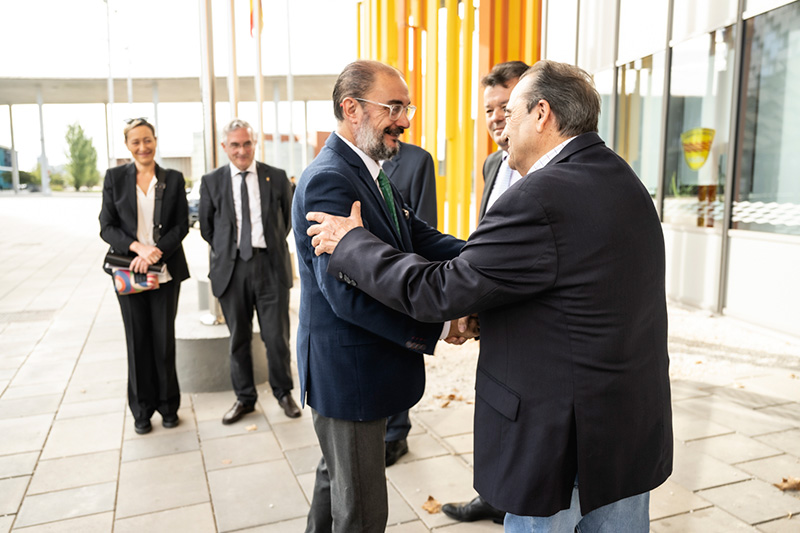
Grupo Jorge, the main producer and exporter of pork meat in Spain.
Currently, Grupo Jorge is the leading exporter and producer of pork meat in Spain, with an export market share of 18%, reaching over 100 countries on five continents, thanks to the almost eight million pigs slaughtered in 2021. These figures place us among the five most important pork-meat producers in Europe.
Grupo Jorge is one of the largest meat groups in Spain, with a business turnover in 2021 of 1,425 million euros and has been part of the pork meat sector for over 80 years. Its headquarters is in the province of Zaragoza, which guarantees that a large part of the economic flow generated remains in that territory. It employs a total of 5,700 people, 3,705 of them in Aragon. Furthermore, it is the leading business in the pork meat sector in Aragon that produces and exports the anti-coagulant Heparin.
Additionally, Grupo Jorge, within its strategic plan, will donate 104 million, via the carrying out of high-impact initiatives at every link in the industry’s value chain, seeking to create a model of reference in terms of sustainability and innovation, leading digital and economic transformation in the rural parts of Aragon.
This large Aragonese group, as well as overseeing every process in the pigs’ production chain, from genetics to marketing, has diversified its areas of business with activity in renewable energies, rural farms and the plantation of hardwood forests. With the aim of continuing to grow and to create a more sustainable future, Grupo Jorge is a carbon neutral company and has initiated ambitious projects for the care of the environment thanks to the “Feeding the Future” initiative.
